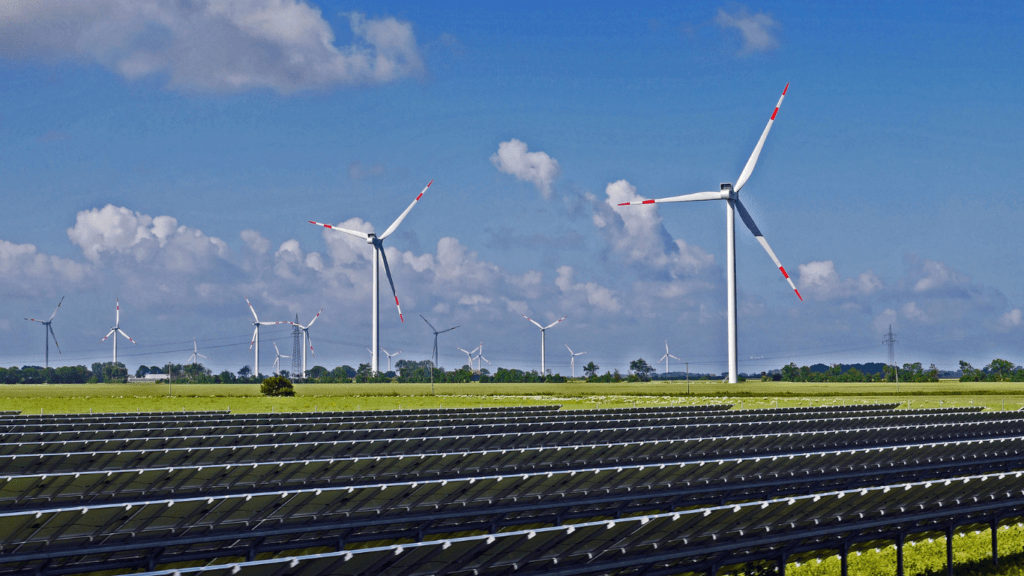Overview Of Early-Stage Startup Investments
Early-stage startup investments focus on companies in their initial stages of development. These startups typically require seed funding to cover initial expenses before generating revenue. Investors seek high growth potential, assessing factors like innovative business models and market demand.
Venture capital firms and angel investors play crucial roles in providing early-stage financing. According to CB Insights, global venture capital funding reached $300 billion in 2021, with $60 billion allocated to early-stage startups. These investors often provide not only capital but also strategic guidance and networking opportunities.
Key sectors in early-stage investments include technology, healthcare, and renewable energy. In the tech sector, artificial intelligence and cybersecurity have captured significant investor interest, driven by demand for advanced digital solutions. Health tech innovations, such as telemedicine and biotechnology, also attract substantial funding due to the growing emphasis on healthcare efficiency and accessibility.
Geographical diversity exists in early-stage investment trends. North America, particularly Silicon Valley, remains a dominant hub for venture capital activity. However, regions like Southeast Asia and Europe are experiencing growth spikes, offering new opportunities for investors seeking geographic diversification.
Current Trends In Early-Stage Startup Investments
Recent patterns in early-stage startup investments reflect significant changes in industry focus, geographic preferences, and valuation methodologies.
Industry Focus And Sectors
I see a growing emphasis on technology-focused startups, particularly those in artificial intelligence and machine learning.
- Health tech, exemplified by telemedicine platforms, attracts substantial interest due to the rising demand for accessible healthcare solutions.
- Fintech remains a dominant sector, with innovative solutions like blockchain and digital wallets gaining traction.
- Green energy solutions draw investor attention, driven by global sustainability goals. Examples include startups developing renewable energy technologies or offering eco-friendly products.
Geographic Shifts
Investors are expanding their horizons, seeking opportunities beyond traditional hubs like Silicon Valley. Southeast Asia is emerging as a prominent destination due to its burgeoning tech ecosystem and favorable regulatory policies. Europe, notably Berlin and Stockholm, also attracts investors with its mature startup landscape and supportive infrastructure. Additionally, markets in Latin America and Africa show promising potential, fueled by growing entrepreneurial activities and digital transformations.
Valuation Dynamics
Valuation trends exhibit heightened scrutiny on financial metrics and growth potential. Pre-revenue startups with disruptive business models might receive higher valuations based on their future potential rather than current earnings.
Investors emphasize unit economics, customer acquisition costs, and retention rates when determining valuations. Furthermore, round sizes for seed funding are increasing, with many early-stage startups securing capital amounts in the $1-$2 million range.
High valuations are often justified by robust proof-of-concept and substantial market needs.
Funding Sources And Investor Profiles

Early-stage startups have several funding sources, each with distinct investor profiles. This variety allows startups to find the right fit for their unique needs and growth stages.
Angel Investors
Angel investors, often high-net-worth individuals, invest personal funds into startups. They typically seek innovative ideas and strong founding teams. Angels usually invest $25,000 to $100,000 per startup, but syndicates can offer more. They offer mentorship, leveraging their industry expertise to guide startups.
Venture Capital Firms
Venture capital (VC) firms invest pooled funds from several investors into high-potential startups. They primarily focus on Series A or later rounds with investments ranging from $1 million to $10 million. VCs seek startups with scalability and solid business models. Their involvement offers strategic advice, industry connections, and additional funding rounds.
Crowdfunding Platforms
Crowdfunding platforms like Kickstarter and Indiegogo enable startups to raise funds from a large number of small investors. This democratizes investment, allowing contributions starting as low as $10. Crowdfunding suits product-based startups with early prototypes seeking market validation. Successful campaigns also boost brand visibility and customer engagement.
Challenges And Opportunities For Startups
Startups face a dynamic landscape with unique challenges and emerging opportunities. Understanding both aspects can help founders navigate the early stages effectively.
Fundraising Challenges
Securing funds remains a primary challenge for startups. Despite increased availability, competition for capital is intense. Startups often struggle to stand out to investors when many ventures vie for the same pool. Further complicating this, investors are cautious due to market volatility, demanding robust business plans and proof of traction.
Early-stage ventures may also face difficulties in valuation. Founders sometimes overestimate their startup’s worth, while investors seek realistic valuations to mitigate risks. This discrepancy hinders negotiation and prolongs fundraising timelines.
Limited access to networks can stymie fundraising efforts. Not all founders have connections to affluent angel investors or influential venture capitalists, creating an uneven playing field. Lack of mentorship and strategic advice from experienced investors can further impede growth.
Emerging Opportunities
Despite these challenges, several opportunities exist for startups. Tech advancements, especially in AI and blockchain, offer new avenues for innovation. Fintech, health tech, and green energy startups are particularly well-positioned due to high investor interest.
New funding models, such as equity crowdfunding, enable startups to tap into a larger pool of potential investors. This democratizes the investment process, allowing ventures to raise funds from a broader audience. Product-based startups benefit greatly, gaining both capital and market validation.
Geographic expansion of investor interest also presents opportunities. Regions like Southeast Asia and Eastern Europe are emerging as new hubs for investment, providing startups with alternative markets to explore and secure funding. This global interest reduces reliance on traditional centers like Silicon Valley.
Lastly, sustainability and ethical practices are gaining traction among investors. Startups that prioritize these values attract impact investors who seek to generate social and environmental benefits alongside financial returns. This trend aligns with broader societal shifts towards responsible and conscious investing.
Future Predictions And Trends
I foresee several key trends shaping early-stage startup investments. Remote work and digital transformation continue to drive investment in tech infrastructure and cybersecurity. Startups offering remote collaboration tools and secure online services attract significant funding.
AI and machine learning innovations remain central. Investors increasingly back startups developing advanced AI applications. Areas like predictive analytics, natural language processing, and autonomous systems see heightened interest.
Sustainability and impact investing are no longer niche. There’s a growing trend of investors prioritizing startups with sustainable business models and ethical practices. Technologies in renewable energy, waste management, and sustainable agriculture attract more attention.
New funding models gain traction. I see equity crowdfunding becoming popular, enabling startups to raise capital from a larger pool of investors. Direct listings and SPACs (Special Purpose Acquisition Companies) also offer alternative avenues for raising funds.
Industry-specific accelerators and incubators are evolving. These programs now offer tailored support and resources, aligning with startups’ unique needs. Sectors like:
- health tech
- fintech
- green energy
especially benefit from specialized accelerator programs.
Geographic diversification of investments expands. Investors increasingly explore opportunities in underrepresented regions with growing startup ecosystems. Emerging markets in Africa, Southeast Asia, and Latin America gain prominence due to their untapped potential.
Predicting regulatory adaptations, it’s evident that governments will refine policies to support startup growth. Expect simpler regulations around fundraising and intellectual property protection. These changes aim to foster a more conducive environment for innovation.
Overall, the early-stage investment landscape continues to evolve. Keeping an eye on these trends is crucial for investors looking to maximize their returns and support groundbreaking startups.

 Chief Marketing Officer (CMO) & Unique Author
Annamae Solanoric is the Chief Marketing Officer and a distinctive voice within the company as a unique author. Combining her passion for storytelling with her deep expertise in branding and digital marketing, she not only leads the company’s marketing strategies but also crafts compelling narratives that engage and inspire audiences. Her work as an author has been widely recognized, and she seamlessly integrates her creative vision into building the company’s brand. Annamae’s leadership in both marketing and content creation drives innovation and helps establish strong connections with clients and partners alike.
Chief Marketing Officer (CMO) & Unique Author
Annamae Solanoric is the Chief Marketing Officer and a distinctive voice within the company as a unique author. Combining her passion for storytelling with her deep expertise in branding and digital marketing, she not only leads the company’s marketing strategies but also crafts compelling narratives that engage and inspire audiences. Her work as an author has been widely recognized, and she seamlessly integrates her creative vision into building the company’s brand. Annamae’s leadership in both marketing and content creation drives innovation and helps establish strong connections with clients and partners alike.
